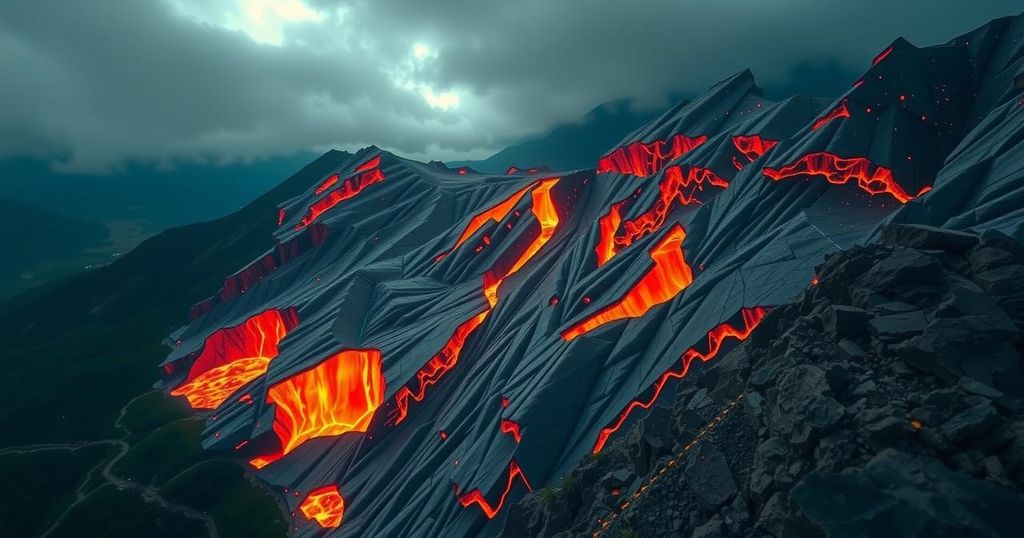A mountain collapse in the Democratic Republic of Congo exposed significant copper reserves, igniting a discourse on colonial exploitation and resource ownership. The viral footage showcased public reactions, with commentary calling for the safeguarding of these resources from foreign entities. Copper’s growing global demand, particularly for renewable technologies, adds urgency to the discussions surrounding local rights to such invaluable assets.
A significant mountain collapse in the Democratic Republic of Congo has uncover massive reserves of copper, sparking widespread discussions surrounding the implications of colonialism and the rights over these resources. Footage capturing the dramatic event has gained traction on social media, leading to a flurry of comments advocating for the protection of these copper deposits from foreign exploiters. The incident occurred in the mineral-rich Katanga region, where local populations observed with a mix of fear and intrigue while seeking safety as enormous boulders fell nearby. Copper is recognized as one of the Democratic Republic of Congo’s most critical natural resources, particularly abundant in the Katanga region, which lies along the Central African Copperbelt—home to the richest mineral deposits globally. The country possesses exceptionally high-grade copper reserves that, owing to their quality and comparatively low production costs, remain highly sought after in international markets. Additionally, the region is not only rich in copper but also in other valuable minerals such as cobalt, uranium, tin, and zinc. The mounting global emphasis on renewable energy and electric vehicles has further heightened the importance of Congo’s copper resources. Reactions online reflect this growing significance, with numerous individuals expressing sentiments to keep foreign entities, particularly from Britain and other western nations, away from these newly exposed mineral assets. Comments on social media platforms highlighted the desire for protection of mines, with declarations such as the need to ‘ban entry’ to foreign countries noted. Moreover, claims were made about the intentional nature of the collapse being linked to mining activities, implying that the event was not entirely accidental, but rather a consequence of ongoing extraction operations in the region.
The Democratic Republic of Congo is endowed with rich mineral deposits, prominently featuring copper, which plays a crucial role in various industries, including technology and renewable energy. The Katanga region is particularly significant for its extensive copper reserves, part of the Central African Copperbelt, which contains some of the world’s most abundant and high-quality copper. The region has been the focus of overt international interest, stemming from historical accounts of colonial exploitation wherein foreign entities sought to extract natural resources without offering equitable benefits to local populations. This recent event of a mountain collapse illustrates the ongoing tensions regarding resource ownership and the implications these resources have for both local communities and global markets.
In summary, the recent mountain collapse in the Democratic Republic of Congo has unveiled substantial copper reserves, igniting discussions about colonial legacies and resource control. As the global demand for copper increases amidst a shift towards sustainable and electric technologies, the implications for local governance and international relations become ever more significant. The local population’s apprehension towards foreign interests reinforces the necessity for a responsible and equitable approach to resource management.
Original Source: www.hindustantimes.com






